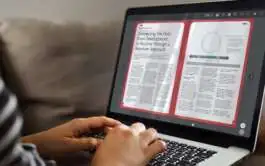The Windsor Framework sets out the arrangements for the supply of medicinal products into Northern Ireland and comes into effect 1 January 2025. Through the Framework the Medicines and Healthcare Regulatory Agency (MHRA) will be able to licence all medicines for the Northern Ireland market in accordance with UK law on a UK-wide basis. [1]
Following the Windsor Framework Industry Webinar on the 23 September 2024, the MHRA have published the this webinar recording on the 18 October 2024[2].
On Thursday 23 October 2024, a further webinar was hosted by the MHRA to provide industry with further information surrounding the guidance and to clarify some of the key aspects previously covered in readiness for the changes on 01 January 2025.
The key takeaways from this webinar are outlined below.
Windsor Framework implementation
The webinar provided an overview of the key points for medicines.
- Patients in Northern Ireland will be able to access the same medicines as the rest of the United Kingdom.
- MHRA will be able to licence all medicines in the market in Northern Ireland,
- EU falsified medicines disapplied for Northern Ireland which brings in line with Great Britain.
- Medicines for the UK market labelled with “UK Only”.
- Packs released to the market prior to 31 December 2024 can remain in supply until their expiry without the requirement to apply a “UK Only” label.
During this overview the audience was encouraged to submit their revised artwork if not already done so and it was also reiterated to refer to the collection of guidance information that has been published by the MHRA and the previous webinar for clarity. It was also noted in the webinar that further guidance will be published relating to advertising and promotions, licensing and paediatrics.
Licensing & Paediatrics
This section of the webinar gave an overview of the guidance that can be seen in the MHRA Windsor Framework Collections and a review of product categorization into category 1 (Authorised products which were authorised in the EU through the centralized procedure and grandfathered at the time of EU exit, Orphan drugs, Advanced therapy medicinal products (ATMPs) will be under this category) and category 2 products (Do not fall into the mandatory scope of the centralized procedure).
- From 01 January 2025 all medicines will be licensed on UK wide basis. There will be an automatic conversion of existing Great Britain marketing authorisations.
- Centrally authorised products will no longer be valid in Northern Ireland.
During the webinar it was advised that the MHRA will be publishing a list of products approved until 13 August 2024 by category. When submitting Marketing Authorisation (MA) applications from late October, The Human Medicines portal will ask the applicants to select the product category. This category will be checked as part of the submission and corrected if necessary.
During this presentation the MHRA advised that they would be taking a pragmatic approach to the differences between the EU-MA and the GB-MA for the 01 January 2025 when looking at procedures and system changes for the stakeholders and allow a reasonable time for these changes to be made. MA holders are encouraged to communicate differences where it does result in a change of clinical practice for healthcare professionals in Northern Ireland.
In relation to Reference Medicinal Products (RMPs) it was advised that if there is no UK reference product because the active ingredient has not been authorised in the UK then the application will be classified as a new active substance. Union authorisations that were not grandfathered cannot be used as RMP. For comparator products the product used must be representative of the UK RMP.
It was advised during the webinar that it will be no longer possible to hold a GB MA and a NI MA for the same product. PLNI and PLGB products cannot coexist for the same product after 01 Jan 2025. If the PLNI is not cancelled on 31 December 2024 then the corresponding PLGB will be cancelled. It was advised during the webinar that action be taken by the MA as soon as possible if not already.
It was also clarified during this presentation that the Windsor Framework does not impact EU medical device regulation, therefore current EU regulatory requirements will continue to apply.
It was noted during the webinar that an update to the guidance on the licensing of biosimilar products will be published soon along with updated guidance for UK Paediatrics Investigation Plans. Key elements of the updates will reflect the Windsor Framework, changes to process and alignment of the guidance with current practice.[3]
Distribution and Manufacturing
During this section of the webinar the MHRA looked at some of the common themes of enquiry that have been prompted by the Windsor Framework guidance and the previous webinar. Again referring the audience to the publications on the gov.uk website around distribution and manufacturing topics for further clarification.
Clarity was provided in the webinar in relation to the cutover period from 31 December 2024 to 01 January 2025 for QP certification. For the Windsor Framework implementation QP certified batches were the point to which a product is considered to be on the market before 01 January 2025. Products that are QP certified after 31 December 2024 will require the UK ONLY labelling.
Batches certified in the EU may be supplied to Northern Ireland without the need for the Responsible Person Import (RPi) process. Trade agreement with the EU allows for QP certification to be performed in Northern Ireland . Therefore these existing arrangements will continue.
During the webinar clarity was provided relating to products that the Windsor Framework applies to as being Authorised medicinal products i.e. those with a product licence number. Therefore Investigational Medicinal Product (IMP) and Active Pharmaceutical Ingredient (API) are out of scope. Again as with the previous webinar there was a reiteration regarding decommissioning and European Medicines Verification Organisation (EMVO) systems. As GB is an export territory products need to be decommissioned before entering GB and there should be reassurance from suppliers that the product is not uploaded into any EMVO system. The MHRA are working with trade to get some examples of what could be provided as evidence. However, if there is an instance that products are in a repository in error, then this should be notified to the MHRA.
The webinar also reiterate the key points relating to exporting . The export of “UK Only” packs can occur only if the products can legally be supplied to the market and can be sold in the markets that are being supplied. Unlicensed medicines can be imported into EU under the supervision of the Responsible Person. Dependent on what purpose they are being imported, stakeholders should continue to notify the MHRA as per the guidance.
For products on the NIMAR list[4] , these will remain in force , it is noted that eventually there should be less medicines on the list as any legacy packs move through the system.
Advertising & Promotion of Medicines
In the final section of the webinar surrounding advertising and promotion of medicines the guidance referenced was the MHRA blue guide [5]and part 14 (advertising) Human Medicines Regulation 2012[6]. The key points covered in the webinar advised that from 01 January 2025 the PLGB number will cover UK wide advertisements. The EU licence number does not apply to the territory of Northern Ireland and therefore should be phased out from UK advertisements. The safety of UK public health is at the forefront and should not be compromised and therefore this is an opportunity to review so that there is no confusion relating to other territories when submitting any updates.
Summary
The webinar gave some further clarity around the published guidance and addressed some questions that have been submitted by stakeholders. The MHRA encouraged the attendees to refer to the published guidance and the webinar recordings in readiness for the 1 January 2025 implementation date.
About the author:
Deborah Harrison has more than 14 years of experience in pharmaceutical supply chain management working in roles within GMP and GDP, with expertise in the storage and distribution of medicinal products including narcotics. Deborah acts as a Responsible Person (RP) and Responsible Person Import (RPi) on Wholesale Dealers Authorisations (UK). Deborah is part of the Cencora Quality & Compliance commercialization readiness team.
[1] The Windsor Framework, New Guidance in accordance with the Windsor Framework. https://www.gov.uk/government/collections/mhra-windsor-framework
[2] https://www.gov.uk/government/publications/windsor-framework-webinar-recordings
[3] https://www.gov.uk/government/collections/medicines-licensing-and-applications
[4] https://www.gov.uk/government/publications/medicines-eligible-for-northern-ireland-mhra-authorised-route
[5] https://www.gov.uk/government/publications/blue-guide-advertising-and-promoting-medicines








